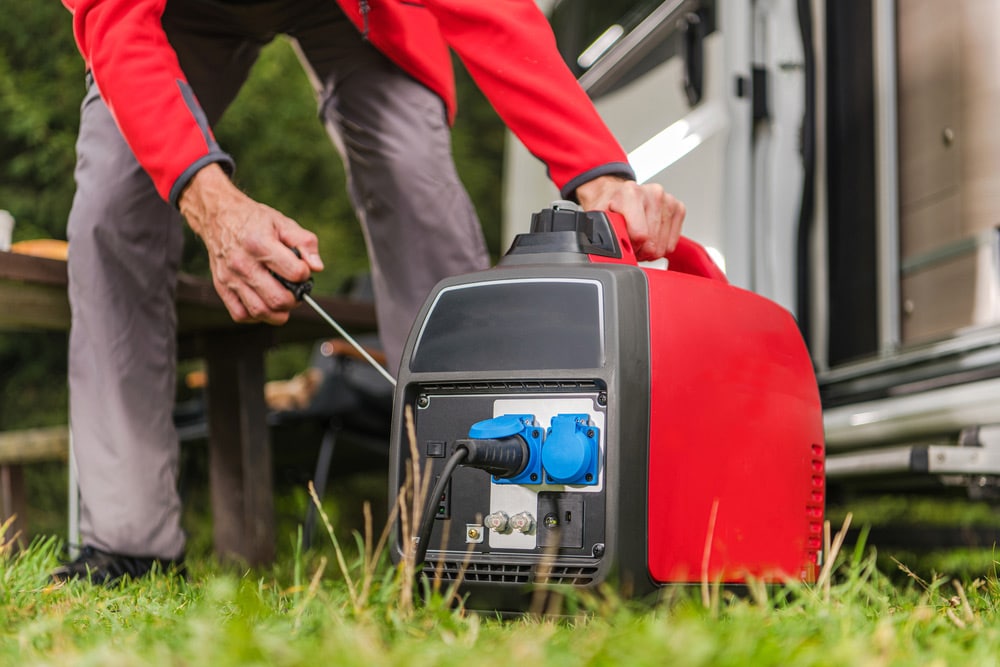Generators are great tools for helping us power our devices and equipment when tapping into the power grid isn’t an option. There used to be only bulky, noisy, fuel-guzzling types of portable generators for these purposes, but inverter generators have quickly become the popular backup power source for rural homeowners and outdoor enthusiasts. Let’s take a closer look at inverter generators below.
What Makes An Inverter Generator Different To A Conventional Generator?
Generators use internal combustion (with petrol or diesel) to generate energy (that’s where they get the name from!) that is converted into an electrical current, but there are two main differences in how a traditional and an inverter generator work. One is how the power is produced, and the second is the quality of the electricity in the output.
Traditional generators produce alternating current (AC) power using a mechanical alternator. This is electricity that is ready to use. Inverter generators do the same thing, but the AC is then converted into direct current (DC), before being ‘inverted’ back into ‘cleaner’ AC power – hence the name! This process produces electricity comparable to what you might get from the electric network.
Inverter generators are generally more compact, quiet, and energy-efficient than traditional generators, but given they are not as powerful as larger conventional generators, they produce a lower power output.
Traditional generators operate at a constant speed but these speeds are also non-adjustable and can result in unnecessary noise, fuel consumption, and exhaust output. With an inverter, you are able to adjust the speed according to your power needs, which makes them more fuel efficient and more environmentally friendly overall.
When Would You Use An Inverter Generator?
There are several types of inverter generators available to hire, including permanent/fixed, portable, trailer mounted and skid mounted. The right one for you will depend on how and where you need to access the electricity.
While traditional generators can be mobile, they are often bigger and heavier than inverter generators, which can make them more unwieldy to move around, so hiring an inverter generator does make things easier.

Which Is The Right Type Of Generator For Me?
It sounds like the quieter, cleaner inverter generator is a no-brainer, but before buying or hiring one, you need to consider your power needs.
Traditional generators come in models up to 15,000 watts, while inverter generators tend to max out at around 6000-7000 watts. So if you’re using heavy-duty machinery, an inverter generator might not be powerful enough, although it’ll be fine for smaller tools.
If you’re looking for something to power more delicate devices like your laptop or mobile phone, you’re best off choosing in an inverter generator to ensure the ‘clean’ electricity protects them from distortion or overheating.
What Are My Options?
Generators come in all shapes and sizes, so you really want to look at what you are going to be using one for before you take the plunge.
Look at how much power your appliances need to start up. In many cases, usage and startup wattages will be the same, but for items with a heat element or motor, they might be different. These items can have up to four times the power requirements to start up compared to what they do for continuous running, so you’ll need to take this into account when adding everything up.
Still not sure? Talk to one of our experts at Chaffey Power, who will be able to recommend the right generator for your needs.




